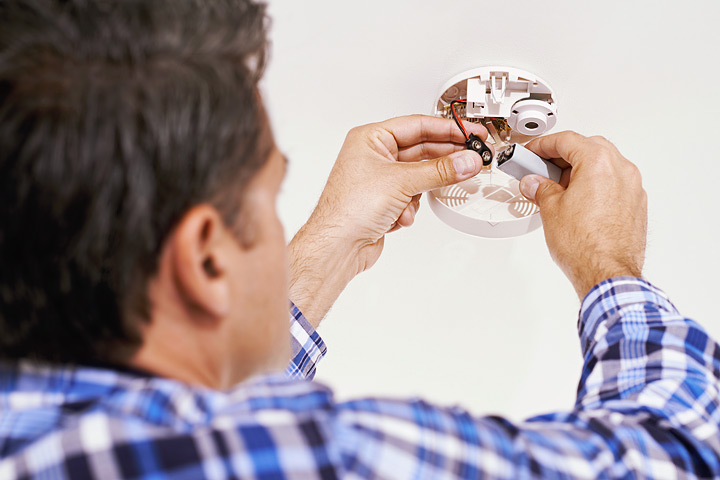How Often Should I Change the Battery in My Smoke Detector?
 Smoke detectors in your home are key to ensuring the safety of your family and property. Having smoke detectors placed around your home is one thing, keeping them in working order is another.
Smoke detectors in your home are key to ensuring the safety of your family and property. Having smoke detectors placed around your home is one thing, keeping them in working order is another.
It’s critical to keep your smoke detector battery working to protect your household. Here are some things you should know about the battery in your smoke detector.
How Often Should I Change the Battery?
As important as it is to change the battery in your smoke detector at regular intervals, it’s equally important to test your detectors to make sure they are working. First Alert states that you should test your smoke alarms once a month. They also say that if your smoke detector is powered by a nine-volt battery, it should be replaced every 6 months. We recommend when you change your clocks for daylight savings to help you remember.
The smoke detector itself should be replaced at least once every ten years.
If you have a lithium-powered smoke detector, you will need to replace the entire device every ten years.
Signs that you need to replace your smoke detector’s battery before six months include:
- It chirps non-stop. Chirping repeatedly is a sign the battery is low and needs replacing. Don’t ignore a chirping smoke detector.
- Monthly testing fails. While it may be inconvenient to change the battery more often than you expected, don’t procrastinate.
Changing the device itself may be required before its ten years are up if:
- The smoke detector goes off for no reason. The devices can become more sensitive as they age.
- It’s been recalled. If the device itself or any part of it has been recalled, it’s time to get a new smoke detector to ensure your device is functioning properly.
What About My Wired Smoke Detectors?
Wired smoke detectors do not have their own batteries. Rather, the control panel for the security system they’re tied into has a backup battery. This way, when the electricity in your home goes out, your system components can continue protecting your home (for a period).
What to Know About Hardwired Smoke Detectors
Hardwired smoke detectors are connected to your home’s power supply, which means that if the power goes out, so will the power to your smoke detector.
The backup battery in your security system’s panel will continue to power the system for a period of time (usually around 24 hours, but it varies depending on the complexity of the system). If that battery dies, your home will be unprotected.
Power must be turned off for maintenance work on the wired smoke detector, which can be inconvenient. Overall, a little more work goes into hardwired smoke detectors, from professional installation to maintenance, but this isn’t a bad thing!
Hardwired smoke detectors are interconnected, meaning all the devices on the same wire will sound when one does. This alerts everyone inside the property and enables them to leave the house immediately.
According to Forbes Home, local codes for new construction are increasingly requiring hardwired smoke detectors because they are so effective.
Whether you use a battery-operated smoke detector or a hardwired one, checking the health of and replacing the battery is important. A working battery means protection for your family.
NEXT STEPS:
- Contact us today to learn more about our services.
- Learn more about what home security means to us.
- Subscribe to our blog to stay informed about the latest security news and insight.

















